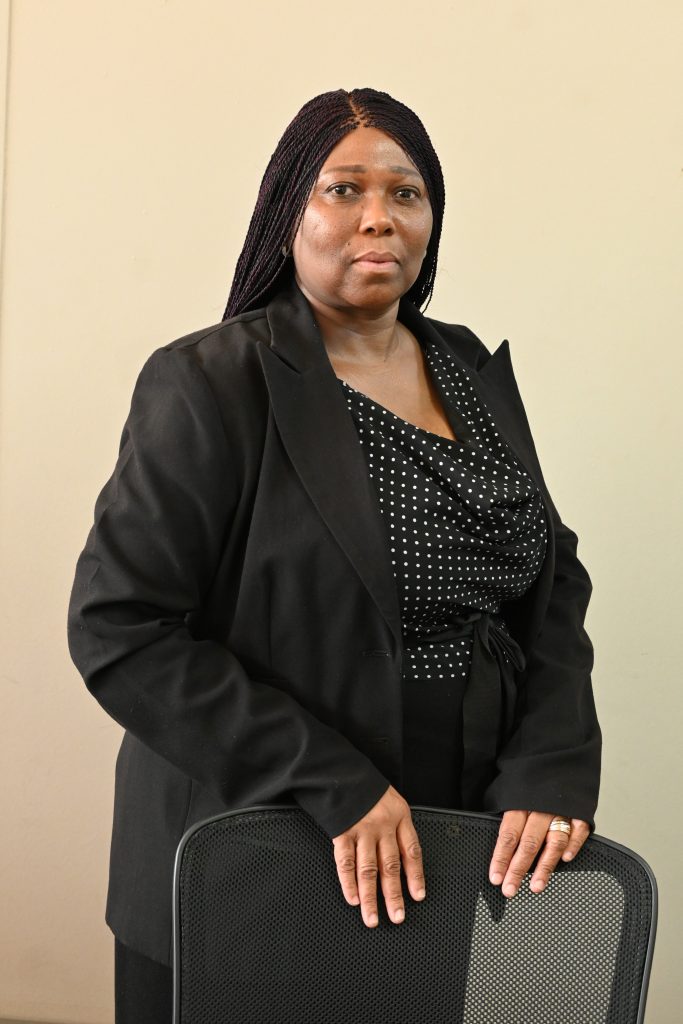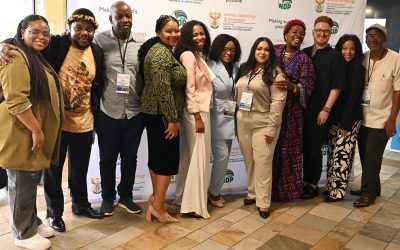Universities play a critical role in advancing scientific knowledge and transforming ideas into practical solutions that benefit society. At Sefako Makgatho Health Sciences University (SMU), this commitment to research is central to its mission. In a significant recognition of this mission, Associate Professor Liziwe Mugivhisa has been awarded the prestigious C3 rating by the National Research Foundation (NRF)—a distinction granted to established researchers with a sustained record of excellence and impact. Based in the Department of Biology and Environmental Sciences under SMU’s School of Science and Technology, Prof Mugivhisa is a leading voice in sustainable food systems, waste management, and environmental health.
 Describing the award as both “humbling and deeply fulfilling,” Prof Mugivhisa emphasised that the accolade reflects not only her individual journey, but also the broader value of research that uplifts communities and safeguards public health in the face of ongoing environmental challenges. Her achievement exemplifies SMU’s strategic focus on research-driven innovation as a vehicle for local and global development.
Describing the award as both “humbling and deeply fulfilling,” Prof Mugivhisa emphasised that the accolade reflects not only her individual journey, but also the broader value of research that uplifts communities and safeguards public health in the face of ongoing environmental challenges. Her achievement exemplifies SMU’s strategic focus on research-driven innovation as a vehicle for local and global development.
The NRF’s C3 rating is reserved for researchers acknowledged by peers for producing coherent, quality work over time and for applying sound research methodologies to complex problems. The award affirms Prof Mugivhisa’s position as a leading figure in Environmental and Biological Sciences.
Her academic journey began with a BSc in Zoology and Chemistry, followed by postgraduate qualifications including an MSc in Aquatic Resources Management from the former University of Transkei (now Walter Sisulu University). In 2017, she earned her PhD in Biology from SMU, a milestone that laid the foundation for her ground-breaking research in sustainable Environmental and Waste Management.
“My interest in this field was sparked by witnessing the environmental challenges faced by poor communities, such as lack of food and clean water, pollution and poor waste management,” she said. “Science gave me a tool to effect change and improve lives.”
Prof Mugivhisa has authored 43 peer-reviewed articles and supervised numerous postgraduate students—three PhDs, six MScs, and 30 Honours projects. Her research covers a wide range of pressing issues, including green catalysis, trace metal bioaccumulation, food safety, and pollutant exposure. Her work has been presented at international platforms such as SETAC Africa (Ghana), Botany 2018 (USA), and the International Phytotechnology Conferences in Canada and China.
One key area of her research explores the use of organic waste, such as compost, human urine, and biosolids, as sustainable fertilisers for improving food security among vulnerable peri-urban communities. “We’re offering low-cost solutions to support food production while addressing environmental pollution. This work contributes directly to several United Nations Sustainable Development Goals, such as Zero Hunger, Good Health and Well-being,” she noted.
Her recent studies have included examining the transfer of environmental pollutants into the food chain, such as through breast milk and dairy products, as well as investigating the use of Moringa oleifera seed extracts to improve crop resilience.
On the implications of the NRF rating, Prof Mugivhisa said: “It enhances my academic credibility and opens doors for future funding and collaboration. More importantly, it allows me to mentor the next generation of scientists with a renewed sense of purpose and visibility.”
Balancing research, teaching, and mentorship is no small feat, but Prof Mugivhisa credits SMU’s Research Development Grant and internal support structures for enabling her continued academic growth. “Having a strong team of dedicated students, experienced mentors like Prof Joshua Olowoyo, a supportive HOD (Prof Piet King), and colleagues has been instrumental,” she added.
Reflecting on challenges, she acknowledged the ongoing barriers of limited resources and funding. “But through collaboration, innovation, and a strong sense of tenacity, I’ve managed to stay the course.”
To aspiring scientists, she offered: “Be persistent, remember that impactful research is driven by purpose, perseverance, collaboration and above all, believe that you can do it.”
Prof Mugivhisa remains committed to contributing research that addresses both environmental and socio-economic challenges in South Africa and beyond. “This achievement isn’t mine alone—it belongs to all those who’ve supported me and to SMU as a whole. Let it inspire others, especially women and underrepresented groups, to pursue science with courage and vision.”
By Tumelo Moila



